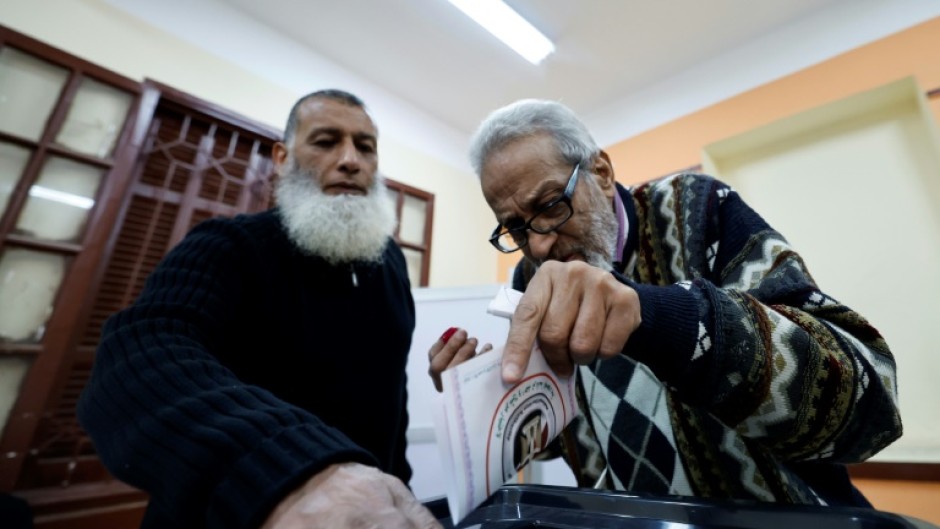EGYPT - Egyptians went to the polls on Sunday in a presidential election overshadowed by war in neighbouring Gaza and with little doubt the incumbent Abdel Fattah al-Sisi would secure a third term.
In a country gripped by the most severe financial crisis in its recent history -- inflation has hovered near 40 percent after the currency lost half its value and drove up the cost of imports -- the economy is at the centre of Egyptians' concerns.
Even before the current crisis, about two-thirds of the country's nearly 106 million people were living on or below the poverty line.
Voting will take place until Tuesday, between 9:00 am and 09:00 pm (0700-1900 GMT) each day, with the official results announced on December 18.
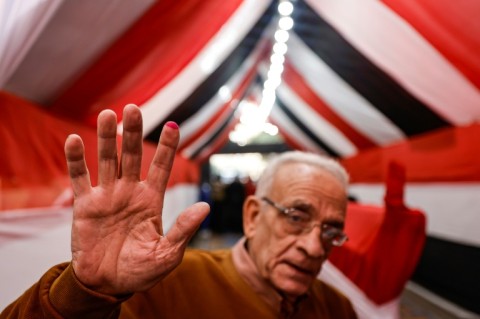
In front of one Cairo polling station, posters bore messages to "get out and participate" while a DJ played nationalist songs.
Some 67 million people are eligible to vote, five million of whom had cast their ballots by 4:30 pm (1430 GMT) on Sunday, according to a statement from the National Election Authority.
Turnout is expected to be a key indicator of public sentiment in an otherwise uncompetitive election. Last time, it fell six points to 41.5 percent.
Casting her ballot in the western Cairo district of Dokki, Asmaa Refaat, a voter in her forties, said she "doesn't know the other candidates".
"I only know President Sisi," she said, calling on the winner "to change our lives for the better and ease inflation".
Annual inflation is at 38.5 percent, with food price rises alone hitting 45.2 percent, official figures showed on Sunday.
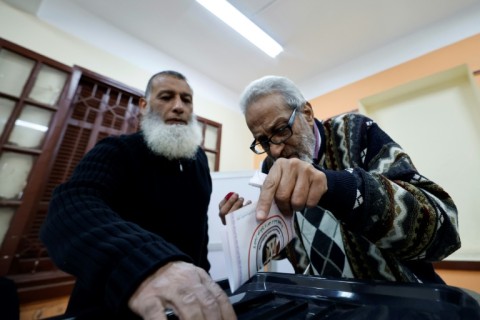
Voter Fathi Ali, 79, said he "only asks that the next president ensures full health insurance".
Despite Egypt's afflictions, a decade-long crackdown on dissent has eliminated any serious opposition to Sisi.
Under his rule, Egypt has jailed thousands of political prisoners.
- Opponents arrested -
Egyptians, meanwhile, have paid little attention to election campaigning that has taken place in the shadow of the war between Israel and Palestinian militant group Hamas in Gaza.
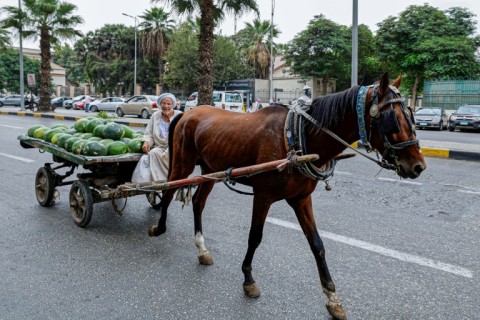
That conflict has monopolised media and public attention across the Arab world. Talk shows in Egypt -- closely tied to the intelligence services and fervent supporters of Sisi -- have sought to link the two issues in the incumbent's favour.
"We cannot sit idly by and watch, we will go out and say 'no to the transfer'" of Gazans into Egypt, said one TV presenter, Ahmed Moussa, echoing a speech by Sisi at the start of the war in October.
For some voters, Gaza takes precedence over other concerns.
"Yes, there's inflation and things are hard, but we need someone capable of handling what's happening at the border," a voter in her fifties told AFP, referring to Egypt's frontier with Gaza.
"People need to participate, but let's be realistic: these elections are set for Sisi, because no one knows the other candidates," she said, requesting anonymity for fear of reprisal.
The three other candidates are all relative unknowns among the public: Farid Zahran, leader of the left-leaning Egyptian Social Democratic Party; Abdel-Sanad Yamama, from the Wafd, a century-old but relatively marginal party; and Hazem Omar, from the Republican People's Party.

Two more prominent opposition figures had attempted to run but were quickly sidelined by the government. Today, one is in prison and the other is awaiting trial.
Journalist and activist Khaled Dawoud said "we are not kidding ourselves, the vote will be... neither credible nor fair".
But he added on Facebook that he would vote for Zahran in order to "send a clear message to the regime" that "we want change".
- Painful reforms -
Sisi, a retired field marshall in the Egyptian army, came to power in 2013 after leading the overthrow of elected Islamist president Mohamed Morsi.
In both the 2014 and 2018 elections, he won with over 96 percent of the vote, according to official results.
He later extended the presidential mandate from four to six years and amended the constitution to raise the limit on consecutive terms in office from two to three.
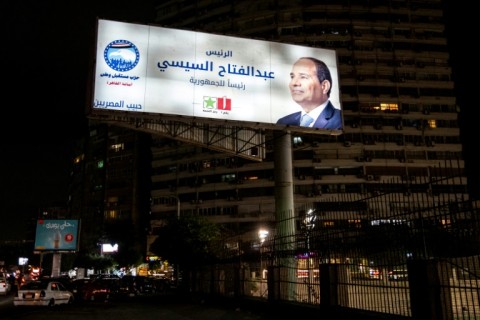
Sisi is not without supporters, many of whom credit him with engineering a return to calm after the chaos that followed the 2011 uprising that overthrew Hosni Mubarak.
Since 2014, the president has promised to restore stability, including for the economy.
From 2016 onwards, he has undertaken a host of economic reforms which have slashed the number of civil servants and devalued the currency.
Those policies, coupled with expensive mega projects including a multibillion-dollar new capital, have led to surging prices, fuelled public discontent and undermined Sisi's support both at home and abroad.

